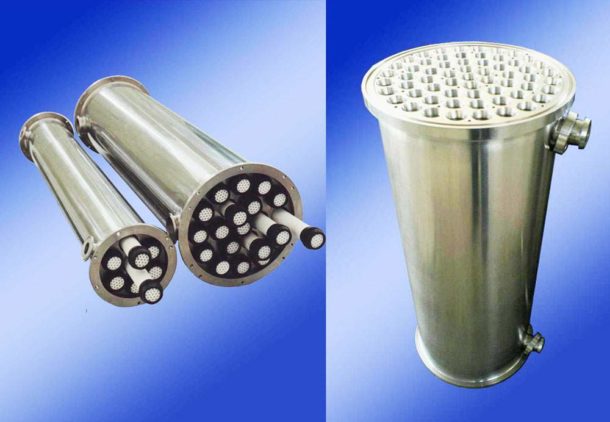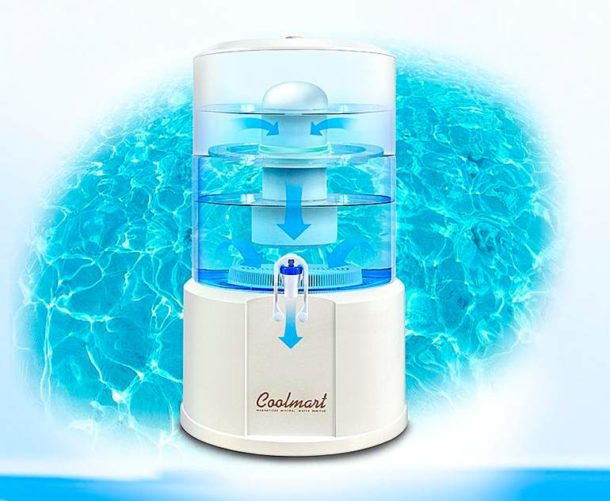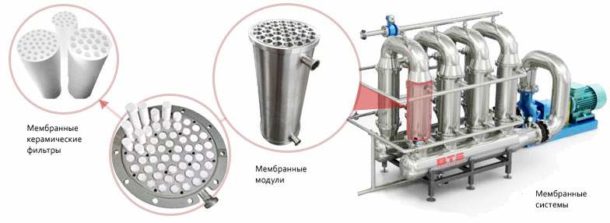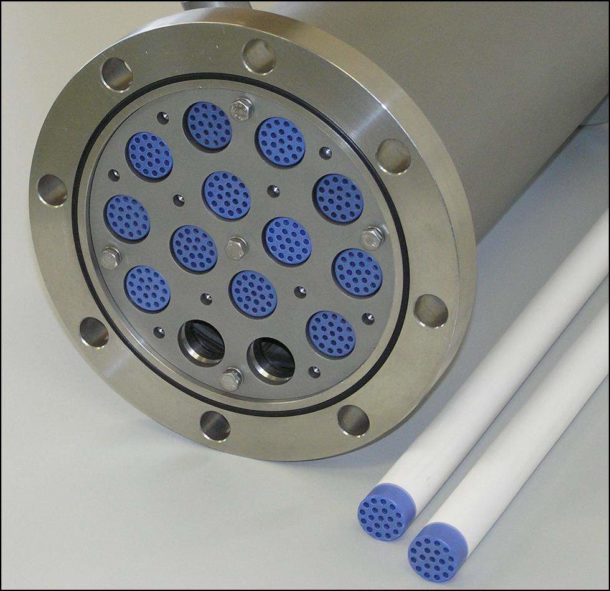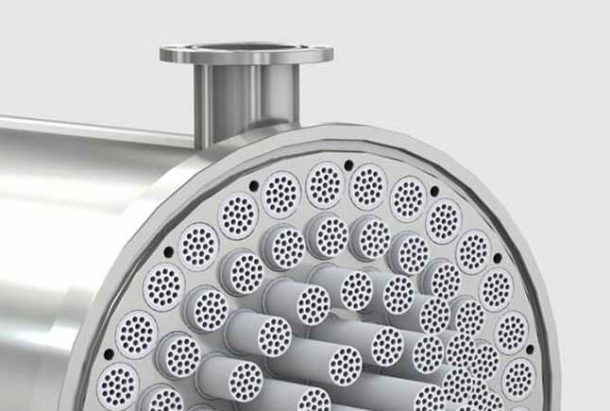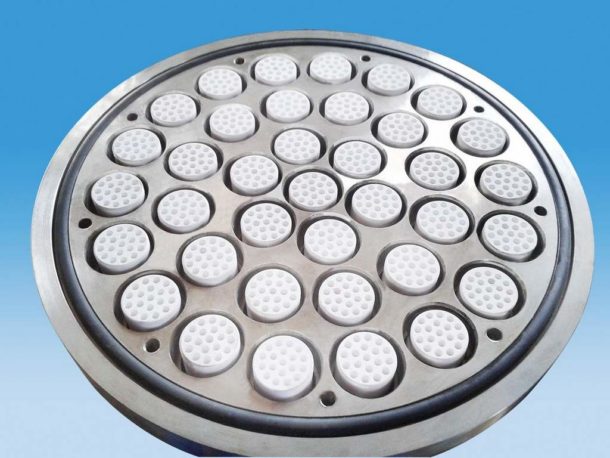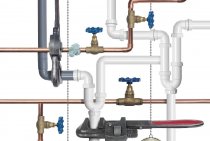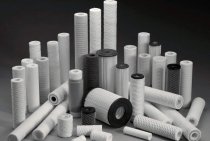It's no secret that tap water contains a large amount of additives, impurities, chemical elements and organic compounds. That is why people are increasingly resorting to additional filtration devices. There are many drinking water treatment systems that work according to different principles, but the ceramic water filter deserves special attention. Let's find out what it is and what is its fundamental difference from other types of filter systems.
Ceramic filter device
The principle of operation of the ceramic filter is based on the passage of water through microscopic pores that do not let through and retain the smallest particles, dirt and bacteria. Such porous structures are made from silicon carbide powder, titanium dioxide, aluminum oxide by sintering at a temperature of 1600 degrees.
These filters can be divided into two types:
- devices with a ceramic cartridge;
- ceramic membrane systems.
Ceramic cartridge
The liquid filter cartridge has millions of microscopic pores that are able to trap particles as small as 0.5 microns that settle and accumulate on the surface. Smaller particles of contaminants that could pass through the porous surface get inside the cartridge. Its inner part is a complex labyrinth that traps the remaining impurities.
Ceramic cartridges are used in storage filter systems - dispensers, often in combination with activated carbon. The output is the purest water, 98% free from all possible impurities.
Ceramic membrane filter
This type of filter is flow-through, its modification, suitable for use in an apartment, is usually sink installation device.
Passing through the membrane, the purified water stream is divided into two streams: a concentrate and a filtrate, where all contaminants and harmful impurities are separated from clean water. Since water molecules are much smaller than impurity molecules, all water contaminants are not able to pass through the pores of the membrane, and the purified liquid flows freely.
Ceramic membrane filters consist of two components:
- a membrane unit containing a multi-channel tube made of cermet, the inner part of which is a finely porous membrane;
- stainless steel cases.
There are three types of ceramic membrane filters:
- Microfilters. The membrane of such a system is capable of retaining particles as small as 0.1 microns, including some types of microorganisms and mechanical impurities.
- Ultrafine cleaning devices. The size of the holes in such a ceramic membrane does not exceed 0.01 micron and does not let heavy metal molecules, organic substances, and many viruses through.
- Nanofilters. They are purified at the molecular level, the water after them becomes distilled.
In addition to purifying water from pathogens, metals, organic compounds and turbidity, ceramic filter devices can eliminate unpleasant odors and bites in water.
Difference from other types of filter systems
Nowadays, the consumer is provided with a very wide choice of drinking water treatment systems:
- reverse osmosis filters;
- cartridge;
- ozone;
- ceramic.
Let's compare the action of a ceramic filter with other types of devices.
- The reverse osmosis system perfectly copes with the task of purifying water and removes all substances harmful to the body from it, but, unfortunately, it does not pass useful substances either, practically turning it into distillate. The device of the ceramic filter allows you to retain harmful impurities, while not depriving the water of useful salts and minerals.
- Fine cleaning cartridge systems, as well as ceramic ones, purify water with high quality, but unlike the latter, they require regular replacement of expensive cartridges.
- When choosing an ozone filter, you must be especially careful, since undecomposed ozone is dangerous to human health. In addition, the ozone filter only disinfects the water, destroying all types of microorganisms, without purifying it from impurities.
Unlike the above installations, ceramic filters have much more pluses than minuses. They have only one drawback - a rather high cost.
Advantages of ceramic filters
Ceramic filters for water purification have many undeniable advantages:
- Absolute security. Removal of impurities without the use of reagents eliminates the possibility of unwanted substances entering the water.
- Immunity to alkaline and acid influences, resistance to mechanical damage.
- No consumables or replacement parts. The membranes of such filters are easy to clean by backwashing, there is no need to change them due to clogging. Due to this, their service life is more than 10 years.
- Due to the simplicity of the design, it is quite possible to install or replace such a filter without resorting to the help of specialists.
- Unlike a reverse osmosis filter system, a ceramic membrane does not deprive the water of potassium and magnesium ions necessary for the human body, eliminating only hardness salts.
- High-quality deferrization of water.
- In the process of membrane fouling, the quality of cleaning remains at the same level, only the throughput decreases.
Some models of ceramic filters include the additional use of activated carbon tablets, which further improves the quality of water used for drinking and cooking.
Russian-made ceramic filters
In Russia, several types of ceramic filter systems are produced, which are unique patented developments.
- Filter "Aquacon" manufactured by "Binacor-XT" is designed to purify tap water from salts, rust, metals, chlorine and microorganisms, improve its taste, eliminate odors. The device has a self-cleaning function, is installed under the sink with water supplied through a separate tap. Price - from 16,000 rubles.
- The KMF-0.15 system from NTC-Water purifies water from bacteria, mechanical impurities, iron and heavy metals. Its features are resistance to high pressure, the possibility of self-cleaning, the absence of replaceable parts. The manufacturer offers two modifications of the device - for installation under a sinkat and a portable version, powered by a network or car cigarette lighter. Price - from 18,900 rubles.
From the beginning of time to this day, water has been an integral part of our lives. Water is 80% of the human body, so the quality of drinking water is of great importance. Very often, people, sparing no expense, buy expensive virus protection products in tablets, drops and injections, not even suspecting that many diseases can be avoided with a conventional ceramic water filter. Thinking about how much such a filter costs, you first need to ask yourself: how much does health cost?
